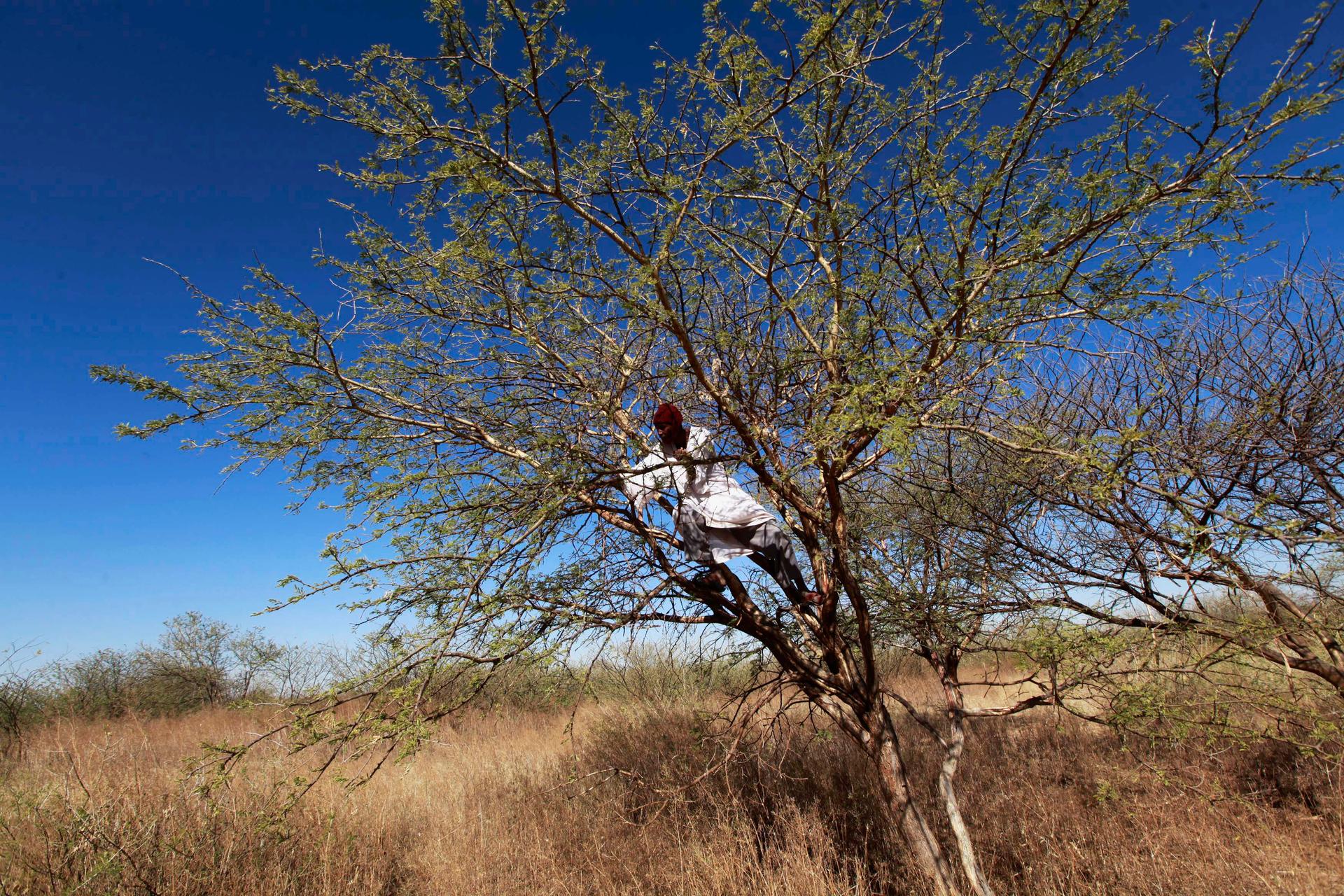Need a cover for your book about Africa? Just add an acacia tree
A farmer climbs on an Acacia tree to collect gum arabic in the western Sudanese town of El-Nahud. The tree appears all too frequently on book covers about Africa, stereotyping the continent.
Africa is a hugely diverse and complex place. Yet when thinking about Africa, many book illustrators come up with the same image: A lone acacia tree.
If they're feeling creative, they might put the tree against a burnt orange sky or perhaps a sunset. Maybe an elephant's silhouette will loom nearby. And there you go. That's Africa. On a book cover.
Simon Stevens of Columbia University called this phenomenon out. He posted a collage of 36 different book covers with that exact image.
M. Neelika Jayawardane couldn't help but laugh when she saw the collage. She grew up in Zambia and is now an associate professor of post-colonial literature at SUNY Oswego in upstate New York, and an editor at Africa is a Country. She says many of the books her students buy and read have those acacia tree book covers.
Her student must negotiate the view such book covers present, their pre-existing views of Africa, and then what is inside the covers. “Much of the semester is spent re-negotiating their understanding of this complex place,” she says.
You can imagine what went through her head when she saw 36 different stereotypical book covers all together. And while surprising to see them as one, it wasn’t that much of a shock. “Whether it’s Nigeria, South Africa, Mozambique, Botswana or Zambia, it’s that same kind of distended belly of the setting sun,” she says. “And I have to say that I grew up with that very acacia tree, the gigantic shading tree, outside my home. So it’s not that it doesn’t exist. But it’s not the only thing that exists in Southern Africa or East Africa.”
We asked Jayawardane what cover she likes. She cites as an example the cover for Biyavanga Wainaina’s book “One Day I Will Write About This Place.” It’s by the artist Wangechi Mutu.
But the one cover she really wants to see is one that embodies the Africa she knows. It would be the image of her schoolmates in Zambia. It’s an image showing a mix of children from different backgrounds in their very best outfits. She says it embodies the competitive spirit they had about their academics and a lot of love about learning.
“I don’t think that many people imagine that as an African theme or an African everyday.”
